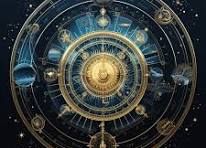Introduction: An Ancient Practice Meets Modern Innovation
Since time immemorial, humans have turned to the stars for answers about life, love, career, and destiny. Astrology has been a revered system of predictive guidance across cultures.
But in today’s tech-driven world, a new contender has entered the cosmic arena — Artificial Intelligence (AI).
This raises a thought-provoking question:
Can AI predict your future more accurately than traditional astrology?
Let’s dive deep into this cosmic debate where ancient wisdom meets machine intelligence.
1. Traditional Astrology: The Ancient Science of Prediction
Astrology is rooted in centuries of observational knowledge about celestial bodies. Based on planetary positions at the time of birth, traditional astrology involves:
- Natal chart interpretation
- Transits and progressions
- Dasha systems (in Vedic astrology)
- Synastry (relationship astrology)
Strengths of Traditional Astrology:
- Personal Intuition: Astrologers use intuition, experience, and spiritual sensitivity.
- Deep Symbolism: The symbolic language of planets, signs, and houses reveals multilayered meanings.
- Cultural and Spiritual Context: Astrologers often consider karma, past lives, and soul purposes.
Limitations:
- Subjectivity: Different astrologers may interpret the same chart differently.
- Time-Consuming: Manual chart creation and interpretation require hours.
- Human Error: Birth time inaccuracies or oversight can lead to flawed predictions.
2. AI in Astrology: Revolutionizing Future Predictions
AI, fueled by machine learning and big data, offers new possibilities in predictive sciences:
- Data Analysis: AI can analyze millions of birth charts simultaneously.
- Pattern Recognition: Machine learning can identify patterns unseen by the human mind.
- Instant Reports: Generate detailed astrological readings within seconds.
How AI Predicts the Future:
- Training on historical data: AI models learn from real-world outcomes.
- Algorithmic matching: Predict likely events based on planetary patterns and user behavior.
- Adaptive learning: AI gets smarter with more user feedback.
Strengths of AI-Based Astrology:
- Speed: Instant generation of charts, forecasts, and remedies.
- Consistency: Same input produces the same output — no emotional bias.
- Scalability: Can serve thousands of users simultaneously.
- Accessibility: Makes astrology available to those who can’t access human astrologers.
3. AI vs Traditional Astrology: The Major Differences
| Aspect | Traditional Astrology | AI Astrology |
|---|---|---|
| Interpretation | Intuitive, symbolic, personalized | Logical, pattern-based, data-driven |
| Speed | Slower (manual) | Lightning-fast (automated) |
| Personalization | High (depends on astrologer’s intuition) | Depends on dataset breadth |
| Emotional Depth | High (includes empathy, counseling) | Low (lacks human emotional understanding) |
| Accessibility | Limited (requires human consultation) | Unlimited (apps, websites, chatbots) |
4. Case Studies: Human vs AI Prediction Accuracy
Case 1: Career Prediction
- Traditional Astrologer: Analyzes 10th house, Saturn, transits for a career timeline, gives nuanced advice.
- AI App: Predicts likely job changes in a given year based on planetary transits historically associated with career shifts.
Outcome:
AI predicted timing accurately, but lacked emotional support.
Human astrologer provided context, remedies, and encouragement.
Case 2: Relationship Prediction
- Traditional Astrologer: Reviews 7th house, Venus/Mars dynamics, karmic patterns.
- AI App: Matches natal charts for compatibility percentage.
Outcome:
AI correctly indicated compatibility scores, but traditional astrologer offered deeper counseling on overcoming karmic relationship issues.
5. Advantages of Using AI in Astrology
- Democratization of Astrology: Makes astrology accessible to anyone with a smartphone.
- Learning Tools: Helps astrology students practice and compare interpretations.
- Business Boost: Astrology businesses can automate consultations, horoscopes, and client communication.
Example: Apps like Co-Star, The Pattern, and KundliGPT are leading this change.
6. Where AI Still Falls Short in Astrology
Despite its amazing capabilities, AI astrology has limitations:
- No Spiritual Insight: AI cannot intuit soul lessons or karmic themes.
- Limited Creativity: Cannot weave nuanced narratives from planetary placements.
- Cannot Replace Counseling: Emotional support, healing, and mentoring require human connection.
Important: AI reads patterns. It doesn’t “feel” destiny or karma.
7. Future of AI and Astrology Together: Collaboration, Not Competition
Astrologers and AI are not enemies. In fact, the most powerful future lies in hybrid models:
- AI handles: Data processing, pattern matching, chart generation.
- Astrologer handles: Emotional counseling, karmic analysis, remedies.
Think of AI as your cosmic assistant — not your replacement.
8. Should You Trust AI to Predict Your Future?
Short Answer: Trust it as a tool — not as the sole guide.
Long Answer: Combine AI insights with traditional astrology wisdom for the best of both worlds.
Astrology, at its core, is a spiritual science. AI can decode patterns but cannot predict divine timing, free will, or soul choices — yet.
Conclusion: The Cosmic Collaboration
AI is revolutionizing astrology by making it faster, smarter, and more accessible.
Traditional astrology remains irreplaceable because it taps into human intuition, spiritual wisdom, and emotional healing.
The future isn’t about choosing between AI and astrologers.
The future is about astrologers using AI to enhance their abilities — much like ancient astrologers once embraced telescopes and ephemerides.

Leave a Reply